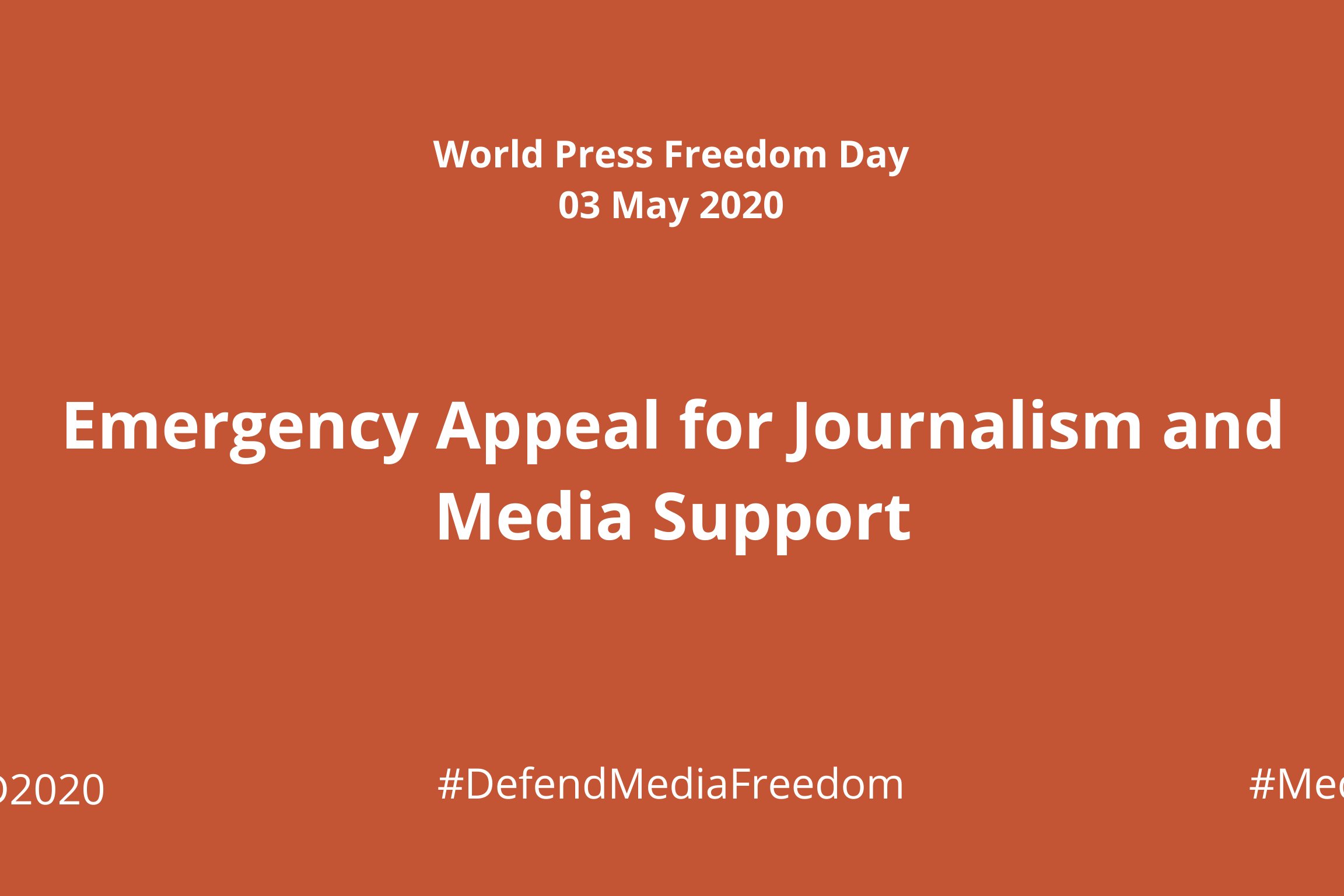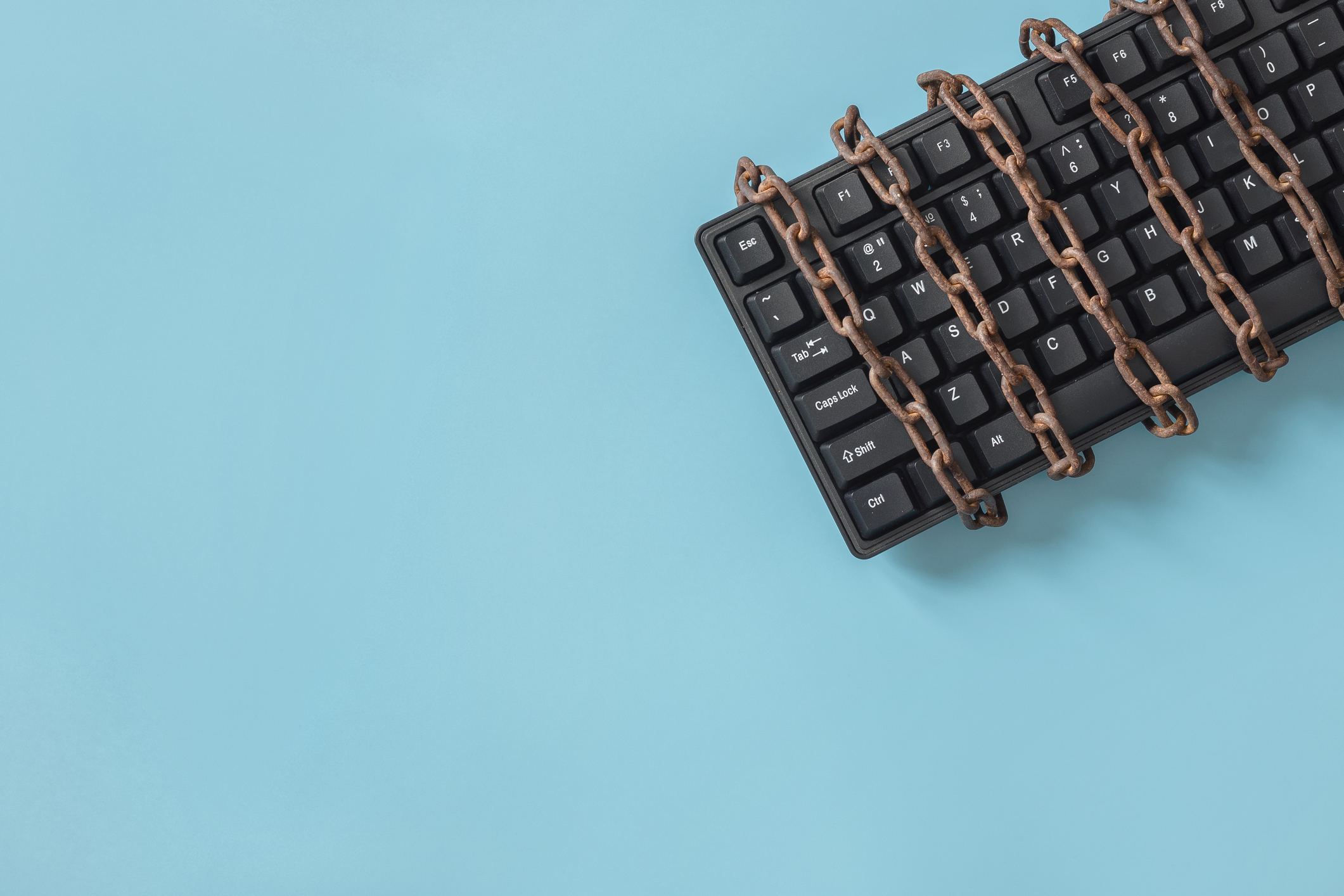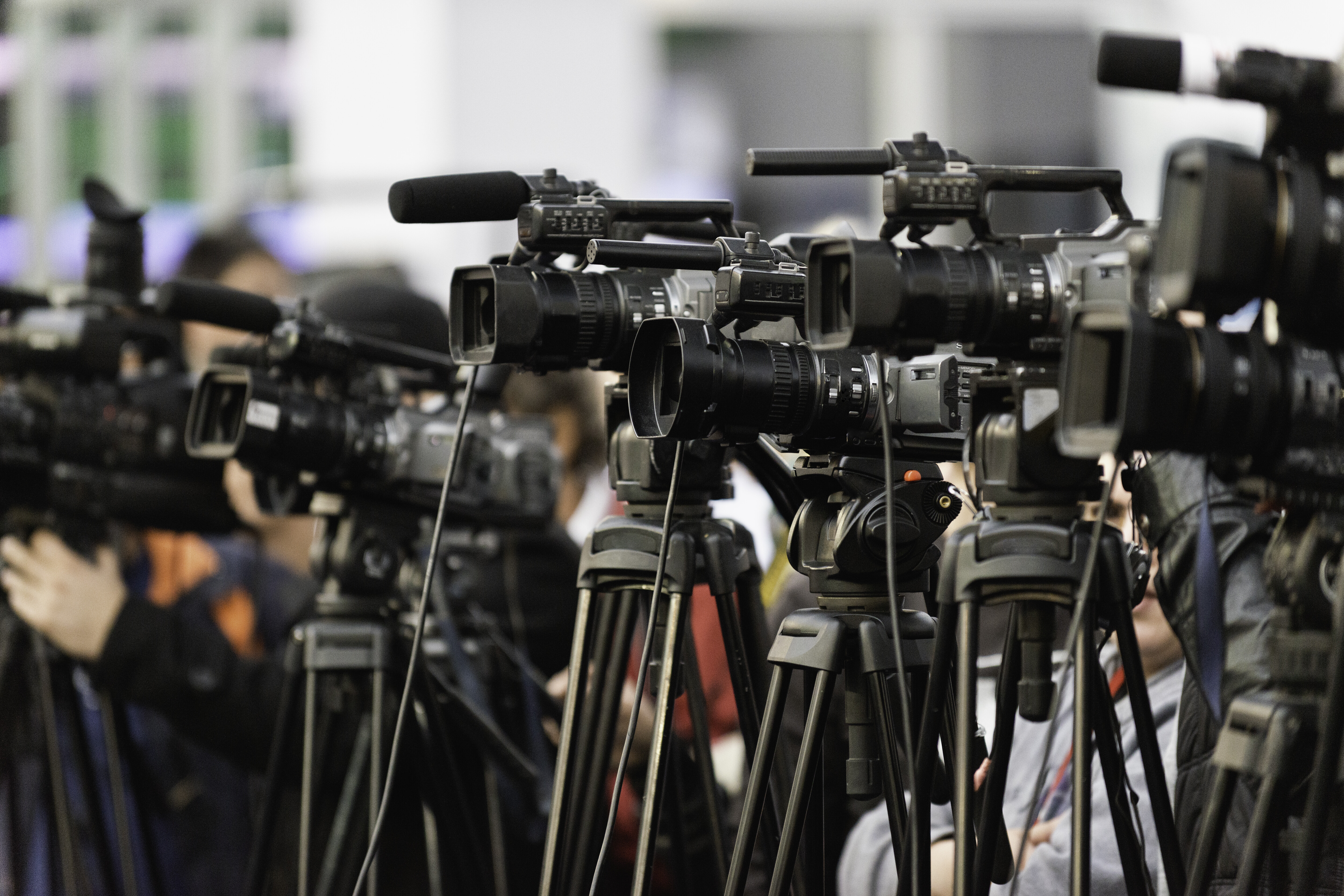It is essential that citizens have access to accurate, timely and independent news and information during crises and emergencies. Yet despite the current pandemic, journalists and media outlets face mounting threats in fulfilling this critical role.
Since March, our Global Call Outs have focussed on the impact of COVID-19 on media freedom worldwide. From Hungary and Romania to Tanzania and Brazil, governments have used the pandemic as an excuse to curtail media freedom, impose draconian legislation and undermine trust in independent news media.
But now, over two months on from the first lockdowns, the true impact of the virus and its effect on public and other independent media is starting to become clear.
March 2020: Global Call Out: Governments must not use coronavirus as an excuse to curtail media freedom
Verbal attacks against journalists by those in positions of power have inspired physical attacks, such as those on ZDF and ARD media workers in Germany in recent weeks as well as at other demonstrations throughout Europe. In Brazil, protesters were emboldened in their attacks on reporters during a demonstration on World Press Freedom Day in Brasilia by President Bolsonaro.
Such rhetoric only serves to undermine trust in news media, at a time when unimpeded journalism is essential to tackling the pandemic by informing citizens and holding power to account.
April 2020: Global Call Out: Media Freedom & COVID-19
But the deterioration of journalist safety goes beyond verbal and physical attacks. It also includes the availability of personal protective equipment (PPE) for those reporting from the front line, social distancing in the workplace and ensuring the safety of media workers despite dwindling budgets.
In the Ecuadorian city of Guayaquil, at least 12 reporters have died and dozens have become sick while reporting on COVID-19, according to Aljazeera. While the lack of PPE has been partly blamed for the deaths, it has also inspired “a kind of self-censorship”, with journalists choosing to stay away due to the lack of protection.
The pandemic is also an economic crisis, with many independent media outlets not only struggling more than ever to achieve sustainability, but also to stay open. While the impact has been particularly difficult for those that purely rely on advertising income, it is even being felt by larger public media organisations.
Read more: Swiss public broadcaster faces financial pressures in wake of Covid-19
Read more: The financial impact of Covid-19 on European public broadcasters
Many with mixed funding models, such as Switzerland’s SRG SRR and Austria’s ORF have temporarily suspended staff due to a shortfall in advertising income, while Ireland’s RTÉ has the additional challenge of a decline in licence fee income as audiences look to save where they can.
In the US, where public media has a more precarious funding model – including public donations – the Corporation for Public Broadcasting has sought an additional $175million in emergency support funds from congress as advertisers and the public alike tighten their belts.
As the coronavirus pandemic continues, it is revealing the long lasting damage it will leave in its wake. On the one hand it has made the value of accurate, trusted and accessible independent news media clearer than ever before. Yet it has also amplified the threats and challenges these organisations face in fulfilling this critical role.
Country by Country
Click on the countries below to find out more about the challenges posed by COVID-19 on media around the world.
Fiji
With Covid-19 presenting unforeseen financial impacts for media outlets worldwide, Fijian media has not been immune to such pressures. As the CEO of the Fijian Broadcasting Corporation, Riyaz Sayed-Khaiyum, recognises: “It’s not only the Fijian Broadcasting Corporation, but all other media organisations are also facing very difficult times. Advertising is almost trickle down to nothing in some cases.” However, with the rise of misinformation across social media, Sayed-Khaiyum believes that more citizens will return to traditional media, which will subsequently encourage more advertising.
However, challenges facing the media in Fiji do not end there. There are deep-seated concerns that the government is using its powers to silence critics of the government’s Covid-19 response. This was highlighted in an op-ed by a Fijian military leader who wrote in a pro-government newspaper that, “In times of such national emergency such as this global pandemic… our leaders have good reasons to stifle criticism of their policies by curtailing freedom of speech and freedom of the press.”
Daniel Bastard, head of RSF’s Asia-Pacific desk, condemned this attitude: “No authority, and certainly not a military officer, should be arguing in favour of placing any kind of curb on press freedom… These comments recall the worst time of the Fijian military dictatorship from 2006 to 2014.” He urged the Fijian government to give citizens access to information in order to help stop the spread of the virus.
Such two-pronged threats pose a significant challenge to efforts to limit the impact of COVID-19. Citizens require access to accurate and critical information in order to make informed choices – this is not just fundamental to limiting the impact of the pandemic, but fundamental to democracy.
Germany
On 6 May, television crew members of Germany’s public broadcaster ARD were attacked by “illegal protesters” while covering a demonstration in Berlin close to the Reichstag building. The protest was organised by well-known chef Attila Hildmann to publicly refute the government’s restrictive measures for suppressing the COVID-19 pandemic.
This assault on media personnel came within a week of an attack on members of a camera crew from public service broadcaster and PMA member, ZDF. Six out of seven of those crew members were hospitalised and six members of the public were arrested.
According to a report by Deutsche Welle, a 46-year-old suspect is facing criminal assault charges for the attack on ARD’s crew members. Video footage of the assault was captured and posted to Twitter.
These attacks against the media are fuelled by the rhetoric of public representatives. Protest organiser Hildmann has been known to have little regard for the media. In the past he was quoted saying that the media is “a staged front to make it easier to grab power.” Shortly before the ARD crew was attacked, Hildmann spoke about a “lying press”.
On the day the ZDF members were attacked, the organiser of that protest, IT entrepreneur Michael Ballweg, denounced media outlets ARD and RTL saying that the “style of reporting that in his opinion is one-sided and erroneous.”
The German Foreign Minister Heiko Maas condemned the attack on Twitter saying, “Those who attack journalists also attack our democracy.” In a separate statement he emphasised that a “free and diverse media who are able to carry out their work unimpeded are requirements for a functioning democracy.”
The Public Media Alliance stands in solidarity with ARD and ZDF, and condemns any physical attacks on journalists and media workers. While the right to assembly and association helps to underpin democracy, threats against journalists and their ability to report events undermines access to information and the public’s ability to participate in civil society.
Malaysia
In PMA’s Global Call Out in March, we expressed our concerns about the government’s use of a vague law to criminalise so-called fake news as defined by the state. Laws such as these not only allow the government to exert direct control over the media but also perpetuate self-censorship among journalists due to their vague nature.
Now, in a further hindrance to their ability to hold power to account, all journalists bar those that work for government-affiliated organisations, will be barred from covering the first sitting of the country’s lower house parliament on May 18. The refusal to allow non-governmental journalists sets a dangerous precedent not only in regular periods, but especially now when COVID-19 related bills and motions are being discussed.
This will be the first time that the parliament has sat since the change of government in March. The lower house speaker, Mohamad Ariff Mohd Yusof, cited COVID-19 as the reason behind the decision, with no further details.
Nigeria
The safety and welfare of journalists reporting on the Covid-19 pandemic is paramount during this time. According to the journalists that took part in a survey conducted by media and civil society organisations, many admitted to not having sufficient protections put in place to ensure their safety while reporting. They call on media managers to provide more personal protective equipment and establish workplace policies that will ensure their safety, among other measures.
At the same time, since the start of Nigeria’s lockdown on 29 March, journalists’ movements have been restricted, with fewer being accredited to cover press conferences. The spreading of misinformation or critical reporting of the state has also prompted law enforcement in some states. Media freedom and human rights advocates have co-signed a statementurging the Government of Nigeria to refrain from using their Covid-19 response as a tactic to intimidate journalists or prevent them from reporting on the Covid-19 pandemic, in a landscape that has notoriously shown little interest in or will for journalist protections.
Pakistan
Since March, the Editor-in-Chief of one of Pakistan’s largest independent media organisations, the Geo and Jang Group, Mir Shakil-ur-Rahman (MSR), has been arbitrarily held in custody. The arrest, which pertains to the purchase of a private piece of land more than 30 years ago, has been widely interpreted as political in motive and a direct attack on media freedom in the country. According to senior Jang journalists, the case brought by the National Accountability Bureau (NAB) demonstrates how draconian laws are being used to bring the media under control of the government.
It has now been reported that despite protestations, the judicial remand for MSR has been extended until 1 June 2020.
Read more: MSR’s judicial remand extended till June 1
A day after MSR’s arrest, TV channel Geo News fell from its place in the first 10 channels available via cable, to much lower down. This has been a common tactic used by Pakistani authorities to make the channel harder to find. It has since been restored. The Public Media Alliance joins its member, Geo TV, and Jang Group staff in calling for MSR’s immediate release.
Meanwhile, many journalists across the country are struggling with unpaid wages, with many media organisations suffering the economic impacts associated with COVID-19.
Pakistan dropped three places to 145/180 in the latest RSF World Press Freedom Index, with the advocacy group highlighting brazen censorship and the role of the country’s military in exerting pressure on independent outlets, as a reason for its decline. According to a recent report by the Freedom Network, over 90 cases of attacks and violations against the media in Pakistan occurred between May 2019 and April 2020.
Philippines
Last week, the Philippines’ government-backed media regulator forced ABS-CBN, the largest broadcaster in the country, to go off-air following the expiry of the company’s broadcasting licence. Many media freedom and human rights advocates perceive the shutdown as yet another attack on media freedom in the country and have shown their support by signing a petition that will urge the government to put the broadcaster back on-air.
On 7 May, ABS-CBN filed its own petition to the Supreme Court, requesting a temporary restraining order against the shutdown order issued to them by the National Telecommunications Commission. Since then, the House of Representatives Committee swiftly convened and on 13 May approved a bill that would provide ABS-CBN with a provisional licence and enable them to continue operating until 31 October 2020. House Speaker Alan Peter Cayetano believes that, if approved by the Senate, the broadcaster could be back on-air by the beginning of June.
But the broadcaster has been at the receiving end of unfounded assurances about its continued operations and, before that, the subject of threats by President Duterte calling to not renew its 25-year broadcasting licence. Known for its often critical reporting of Duterte’s administration, ABS-CBN’s forced closure has put a lot at stake: 11,000 employees stand to lose their jobs and Filipinos could lose a source of independent and timely information at an especially critical time.
Slovenia
In another sign of democratically elected leaders using rhetoric to undermine the role of independent media, Slovenia’s Prime Minister, Janez Janša, has published a piece on the official government website about his so-called “war on the media”. In the text he takes a broad swipe at the profession, saying:
“The professional group in western civilisation that first declared itself the seventh power, then the fourth (unelected) branch of power and finally the moral judge of political correctness, is increasingly difficult to recognise today as a force for good, for they are neither.”
Read more: Slovenia’s public broadcaster pressured by government
He then rounds on the country’s public broadcaster, RTV Slovenija, by referring to it as a “media killer” and goes on to say that the largest TV channels feed “an atmosphere of intolerance and hatred” that is “created by a narrow circle of female editors with familial and capital ties to the pillars of the deep state”.
The comments are the latest in a string of verbal attacks by the Prime Minister on broadcaster. In our April Call Out, we reported how Janša took aim at RTV after it reported critically on a government decision to raise salaries of ministers and secretaries of state. This was followed by the premature replacement of the public broadcaster’s supervisory board, raising fears for the organisation’s independence.
Header Image: Transmission electron microscope image shows SARS-CoV-2—also known as 2019-nCoV, the virus that causes COVID-19—isolated from a patient in the U.S. Credit: NIAID-RML. Credit: NIAID-RML/Creative Commons
Related Posts
13th May 2020
Emergency appeal for journalism and media support in response the the COVID-19 crisis
PMA have joined more than 140…
27th March 2020
Governments must not use coronavirus as an excuse to curtail media freedom
The Public Media Alliance urges…



